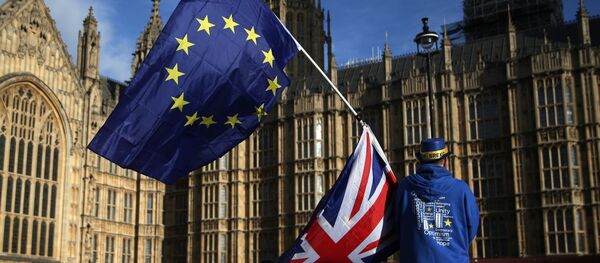The British House of Commons on January 25 published a report into levels of Government borrowing, concluding that the United Kingdom is insufficiently prepared for an economic shock similar to the Global Financial Crisis of 2008. The authors of the report have noted that national debt-levels at the equivalent of US$66,800 for every household in the nation.
US$2.42 trillion public debt coupled with uncertainty over the shape of Britain's future trading orientation has raised concerns over the resilience of the British economy with interest payments on the national debt alone totalling US$315 billion between 2009 and 2015.
High government debt levels have often been used, particularly by Conservative governments as a rationale for austerity policies, cutting social and welfare programs which have come under increasing attack since the 2008 Global Financial Crisis.
The Labour Opposition party on the other hand has advocated increased levels of government borrowing, to the tune of US$350 billion (£250 billion), to invest in transportation infrastructure, housing construction and research and development. Shadow Chancellor John McDonnell has previously argued that borrowing such amounts would be feasible due to the current historically low interest rates and that the increase in economic activity from the investments would make the debt "pay for itself."
The Shadow Chancellor and the government’s debt interest payments. 22 Economist sign in favour of John McDonnell borrowing to invest. https://t.co/wvQtFtHyOs
— Jo 🌹 #JC4PM #MMT (@kcldav43) November 26, 2017



